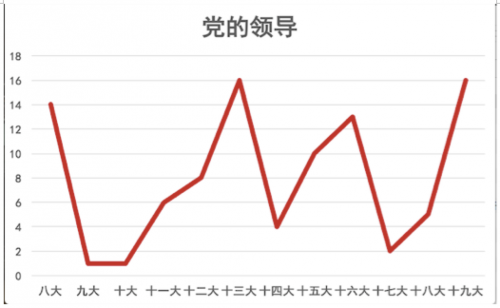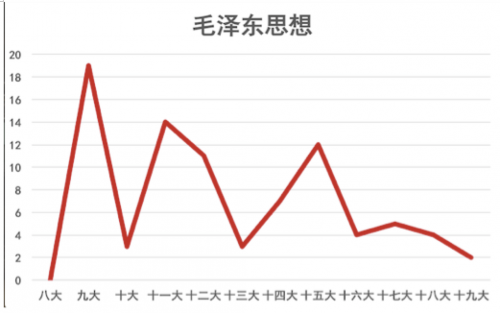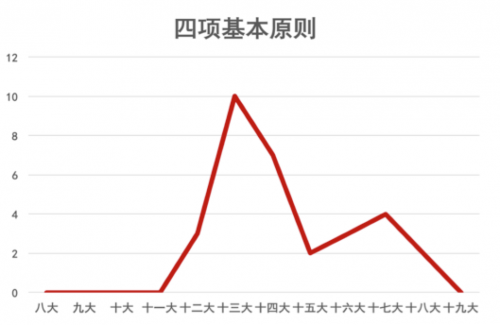Building on yesterday’s reading of Xi Jinping’s political report to the 19th National Congress of the Chinese Communist Party, we can add the following observations. We will continue to update our readers as we note points of significance in the hefty document:
4. The tifa, [the Party must] “act within the scope of the law” (在宪法法律范围内活动) has vanished from the political report.
This phrase was first introduced at the 12th congress in 1982, right at the outset of the reform period. It was again in use at the 13th congress. At the 15th congress in 1997, it was, “The Party led the people in creating the constitution and the law, and acts within the scope of the constitution and the law.” At the 17th congress in 2007, at the midway point in Hu Jintao’s tenure, the relevant phrase was, “Party organizations and all Party members must act of their own accord within the scope of the constitution and the law” (各级党组织和全体党员要自觉在宪法和法律范围内活动). Finally, at the 18th congress in 2012, as Hu Jintao passed the reins to Xi Jinping, the phrase became: “The Party led the people in creating the constitution and the law, and the Party must act within the scope of the constitution and the law” ( 党领导人民制定宪法和法律,党必须在宪法和法律范围内活动).
All forms of this tifa have disappeared from the political report to the 19th Party Congress. In place of the phrase we find another: “No organization or individual is permitted special privileges to exceed the constitution or the law” (任何组织和个人都不得有超越宪法法律的特权).
It shouldn’t take an expert to realize that the removal of “the Party” entirely from this phrase is a significant change, lessening the sense that the Party is restrained by legal frameworks.
5. We see the appearance of a Mao-era phrase, “Party, government, army, society and education — east and west, south and north, the Party leads all” (党政军民学,东西南北中,党是领导一切的).
At the 10th congress in 1973, in the midst of the Cultural Revolution, the political report included this phrase: “[We] must further strengthen the Party’s unified leadership. Party, government, army, society and education — east and west, south and north, the Party leads all” (要进一步加强党的一元化领导。工、农、商、学、兵、政、党这七个方面,党是领导一切的). During the Cultural Revolution, this phrase appeared constantly in the media, which of course were dominated by Mao Zedong.
In the 19th congress report, we see the reemergence of this phrase, and alongside it we see the frequent occurrence of the phrase “the Party’s leadership” (党的领导), which appears 16 times.

6. We see the phrases “Mao Zedong Thought” (毛泽东思想) and the “Four Basic Principles” (四项基本原则) dropping to new low points.
In Xi Jinping’s political report, “Mao Zedong Thought” appears just twice, and the “Four Basic Principles” appears once. This is the lowest point ever for both terms, as you can see in the graphs below.






















